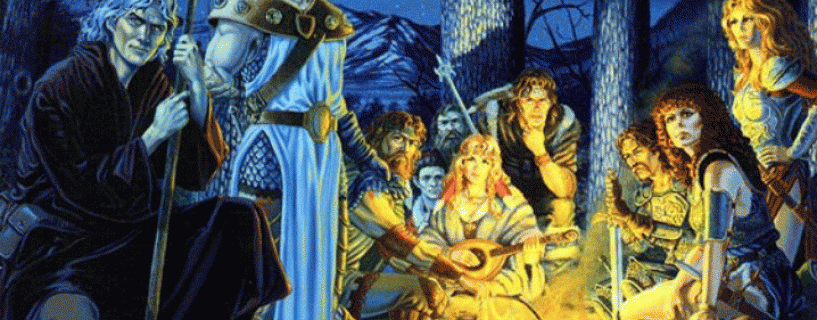Last night began the small and comical experience called the Pundry Chronicles, and one of the more whimsical worlds I’ve seen as a player. Right from the get go the game was light hearted, with overtones of humor and fun. The point of this campaign was fun, and honestly, I felt like I was playing a character straight out of futurama.
Compare this to Land in the Stars which is an overly complex system with overtures of grimdark meshed together with the fantastical combative nature of Mecha Space Opera. The foundations of both worlds and games set the tone for the game and give the project its backbone. But, what is a Foundation? And how is one built?
Defining Foundation
When first making a world and a game the creator usually has a set of themes or ideas they want the player to experience. Dungeons and Dragons traditionally has been about adventuring and questing. It was influenced by earlier childhood dreams of the Fellowship and the Company from the Hobbit and The Lord of the Rings. From that tradition was born a game focusing on elements of high fantasy. Where elves were the oldest race and fought wars before humanity ever existed.
A Foundation of a game is to me the core theme or core set of themes that direct the creation of that game and or community. If your community is about “discussing dreams and nightmares” that is your foundation. It’s a concept that should be easily boiled down in a few words or in a short statement. If someone asks you “What is your game about?” then the answer you give is effectively your foundation point.
Choosing Your Themes
Often if people ask me what are my books about. I generally give a long-winded explanation, but when push comes to shove I say “Its a Oceanic Fantasy about overcoming religious and political fascism”. I choose my words specifically to help evoke a series of images for the listener. Oceanic refers to the status of the world of “Islands” rather than continents and helps people get the idea I’m drawing from Pacific cultures around the rim and island chains. I say the words “overcoming” to give a sense of a plot talking about the underdog dealing with a tyrannical leadership.
When you as a writer, an author, or a creator make your game, world or community think about how you describe. Think about how your words will help fans, members, or readers see what you see. So, if someone creates a world of warrior factions set in a an age of periodic technological advancement those are the themes you are aiming for. From these themes your world evolves and other thematic beats will pulse throughout a worlds creation.
What is the Point?
Well, when the Pundry Chronicles were made what was the point of the humor? It was done because it was -enjoyable- for the players. ThreeFold Seer is set in a Shamanpunk universe where warriors wield Harpoon-Spears. Part of the foundation in that universe was to create a world -without- Indo-European influence. It’s the same kind of foundational challenge Jim Butcher is rumored to have taken when he created the Codex Alera. From that he created a world that mixes Pokemon together with The Ninth Legion of Rome. A ridiculous idea, but a pretty damn good book series to read.
The point of a Foundation is to ground you in different situations. It allows a creator to make a hard decision when they might have a cool idea, and yet it goes far beyond the scope of the game. If a community is about discussing Lego Medieval brick building, nothing says it can’t have a discussion on anything at al. But if the discussions become so serious that a visible divide appears dramatically in that community. Here is where the Foundation applies, and it is time to return to it.
Foundations a means of deciding policy, setting a tone, and overall keeping a sense of stability on a project.

